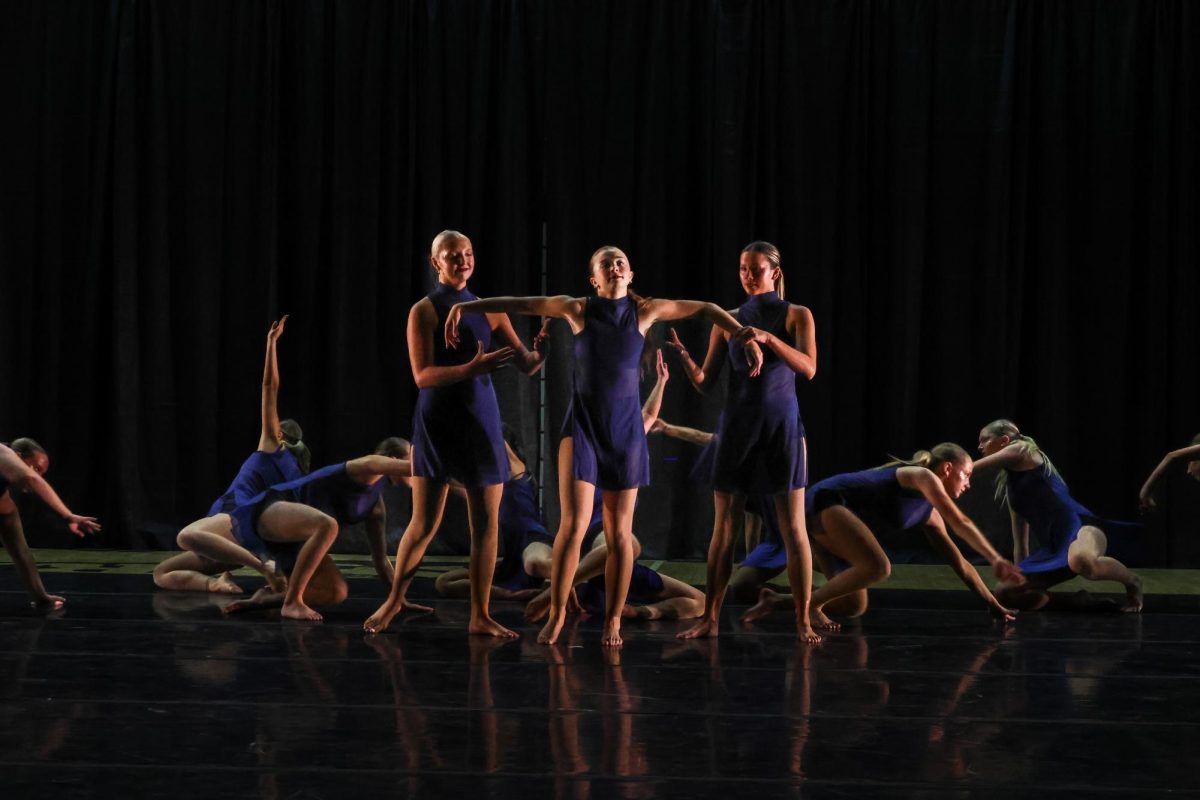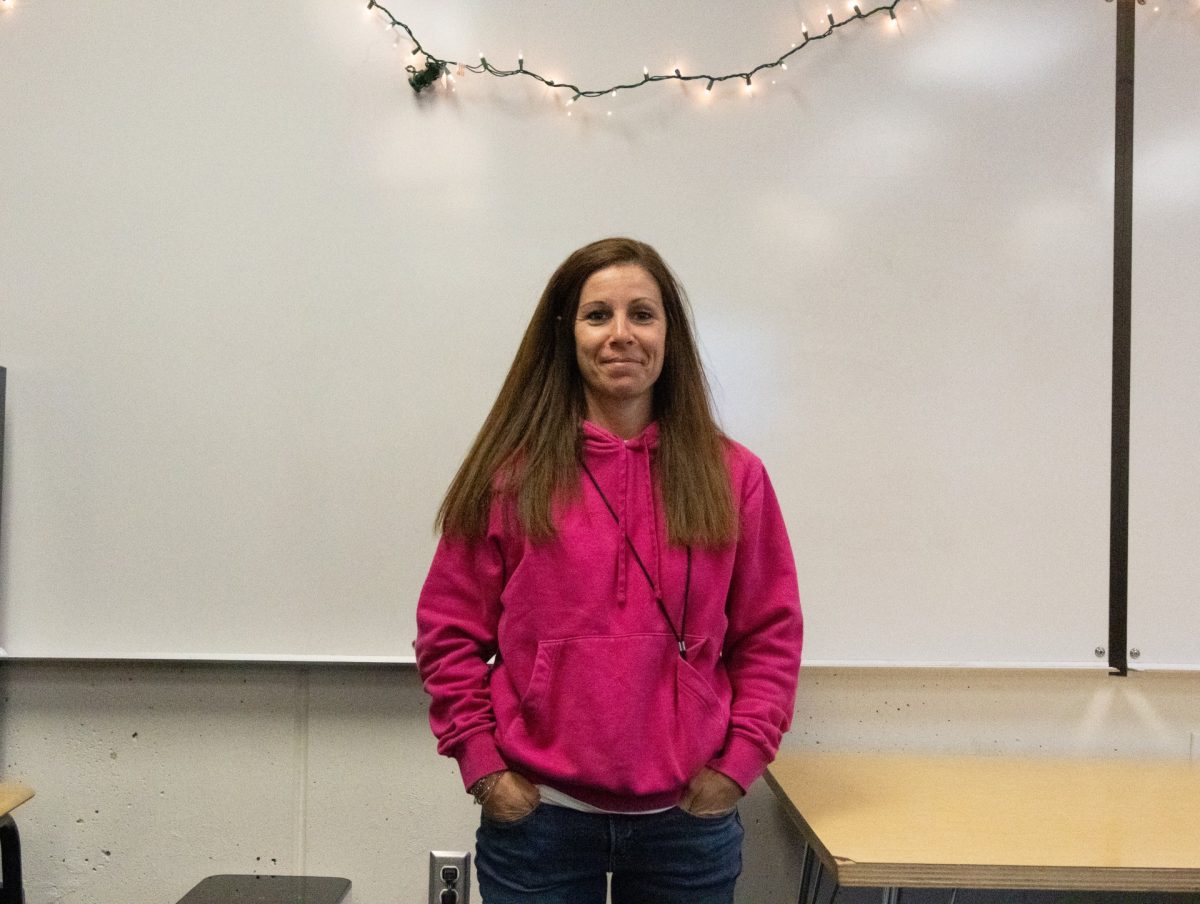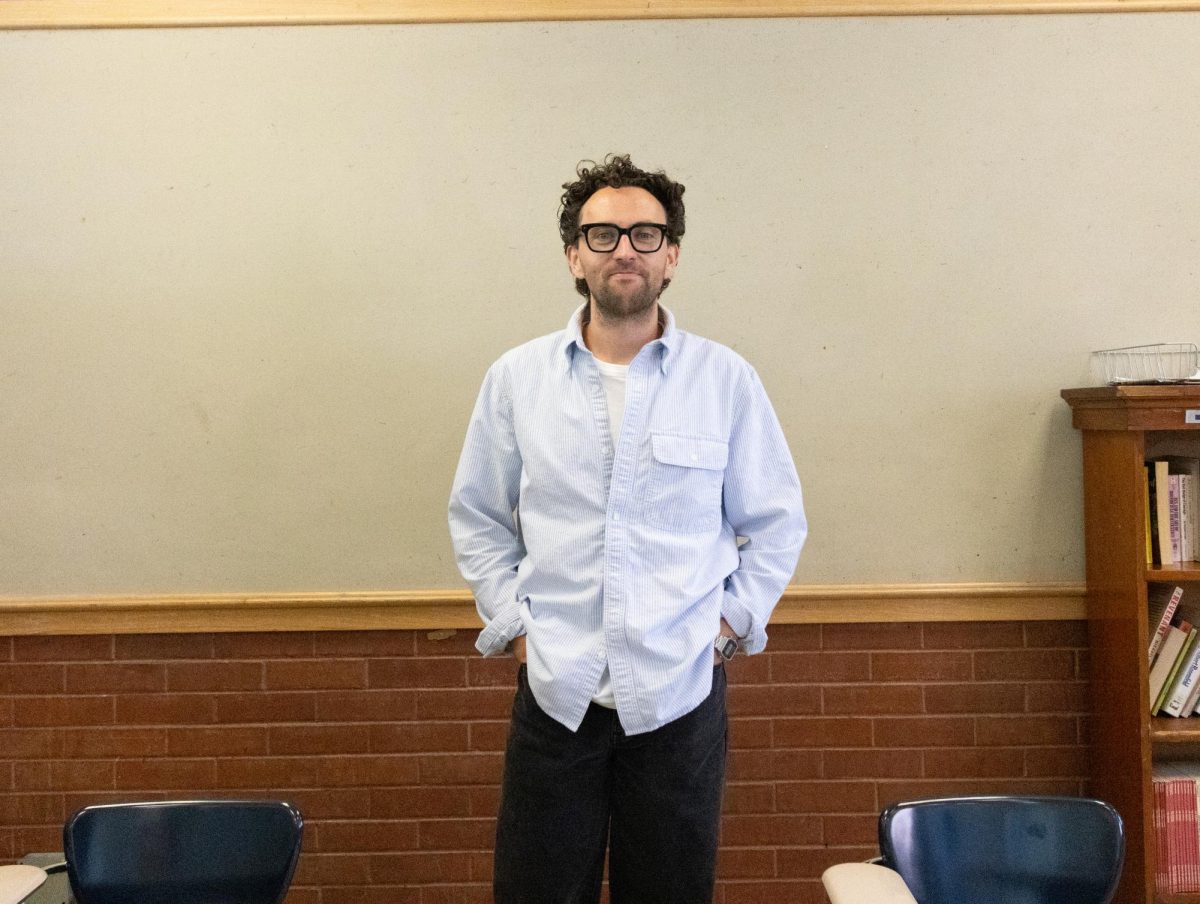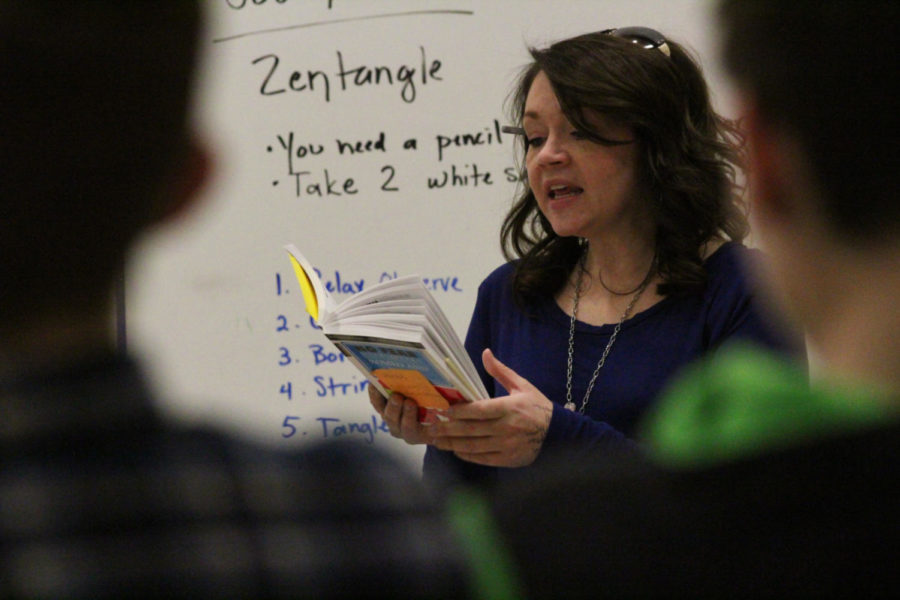A New Path
February 15, 2018
Let’s say that all through your life, every connection you make to everything is like the beginning of a new railroad track leading to something else. For example, there is a railroad track from New York to L.A. It is a direct route, doesn’t have to stop for anyone, and the train always continues moving forward.
Alexie Baugh has been through many things in her life, but never expected anything to throw her off her tracks more than that knock at her door seven years ago.
Late on a Sunday night, Baugh’s train came to a quick and painful halt. Pregnant with her third child, Baugh was experiencing an abnormally intense stomachache. That’s when the knock at the door came. The living room flooded with the glare of red and blue lights as a police officer delivered shocking news.
Hearing that her husband and two young children had been involved in a major car accident, Baugh’s stomachache quickly gave way to shock. The police officer tried explaining what had happened, but all Baugh was focused on was getting to her family.
The train Baugh had been aboard her entire life, normally calmly gliding through the passing scenery, instantly crashed. And like many who see their train slide off the tracks, Baugh had no idea how to feel.
“In lots of ways in my life, I’m a pretty logical person,” Baugh said. “And in that moment, I didn’t know how to react until I had something to react to.”
Baugh began her early childhood in the theatre world. Her train was moving forward, no stops along the way. With parents and older siblings involved in the art scene, Baugh followed closely behind her older sisters and began performing in small productions around the Salt Lake area. Even after getting married and starting a small family, Baugh stayed on her tracks, theatre always pulling her along the way.
“As I got older, I absolutely loved it,” Baugh said. “I didn’t get many big parts as a child because my sisters were older than I was, but I performed all throughout high school and did performing arts in college.”
The tracks moved her forward to receive her degree in English and Theatre Teaching. With multiple auditions, callbacks, and lead roles, Baugh was very successfully involved in the theatre scene well into her 20s. She continues in the theatre world today, teaching theatre classes and language arts at Highland, directing, giving advice and leading her students down a path towards a career in performing. Baugh spent her whole life interpreting the strong emotions of the characters she was playing, or teaching her students how to portray what tone the scene needed. But in this moment, no one was able to tell her how to react to the tragic script she was being handed.
On her way to the hospital, not knowing any news on her family’s medical situation, she found herself staring right at the crash site. Realizing that she was not in the right state of mind to drive on the freeway, she took 7800 South, thinking driving on a slower street would be safer. What she didn’t know is that she was driving right past the accident scene.
On the side of the road, wrapped around a street lamp, was her family car. Shattered glass littered the road, a trail of metal led to the car… Baugh’s shock turned into panic.
“I didn’t cry—I tried to stay as calm as possible,” Baugh said. “But all of a sudden, I could feel my heartbeat in my chest and my pulse throughout my whole body.”
Baugh drove to her parents’ house, unable to continue on the road by herself. Her parents drove her to the University of Utah Hospital where she was taken into a waiting room to await news on the condition of her husband and two kids.
Torn between her husband and kids, she walked across the bridge to Primary Children’s where her son and daughter were being cared for. The news was good — a couple of broken bones and a slight concussion. Baugh finally had the chance to sit down and breathe knowing her children were safe.
Relief for Baugh quickly turned to fear when she received a call from her husband’s doctor.
“They gave it to me straight,” Baugh said. “They said, ‘The second CT scan of your husband’s brain shows hemorrhaging and we now need to drill holes in his skull to minimize the pressure on his brain.’”
She sat on the phone, having to give a verbal okay to do the surgery to two different doctors. The procedure, along with the all the risks involved, were presented to her twice.
When the surgery was completed, she was still unable to see him until he was stable. What followed was weeks in a medically induced coma, shunts in his head, and all the tubes and wires imaginable.
“It was touch-and-go for a good three weeks,” Baugh said. “One day he was fine, sitting up, doing okay, and the next day it was looking really bad for him.”
From the result of the accident, her husband is coping with Left Side Neglect and Left Side Hemiparesis, conditions that prohibit the brain from recognizing the left side of the body as part of the whole body. The mind has limited connection to the left side. It’s like two different halves of a body are sewn together and the brain doesn’t like the new half.
After three long weeks of knowing very little about the nature of his overall brain injury, Baugh was taken into an empty room with the neurosurgeon who did her husband’s surgery, where she was educated on how brain injuries work and how unpredictable they are.
When tragedy happens, everyone experiences that one single moment where they know their life is about to change. This was that moment for Baugh. After three weeks of sitting at her husband’s bedside not being told the severity of his brain injury, the surgeon finally sat her down and explained to her the life they were about to have and the changes her husband was going to experience.
The surgeon explained his brain injury like a broken railroad track. It’s like the regular track from New York to L.A. is broken and there is no possible way to repair it. When the direct route is damaged, the train has to find a new way to get to its planned destination. He can make another route, but it will always be more difficult, it will always take longer, and it will never be the same.
This is how Baugh’s husband’s brain now functions.
He can walk, but now instead of going directly from New York to L.A., Baugh explained, his brain has to take the train from New York to Chicago, and then from Chicago to Florida, to Atlanta, to Minneapolis, to Seattle, and, finally, from Seattle to L.A.
He now has to think through each step, visualize each muscle extending and contracting. A loss of focus means a loss of balance, meaning he can no longer walk and talk at the same time. Simple multitasking is no longer an option for him.
After seven long years, the Baugh family now tries to live everyday like their last. Baugh has a full-time job, a husband who needs a larger amount of attention, and three young kids to look after. She’s like a superhero, but not even that word lives up to her willpower and strength.
After finishing college, a tiny junior high school crush turned into a lifelong commitment for Baugh. Through a time in her life that was almost a breaking point for her husband, Baugh stood tall, taking on the role, displaying the courage that was associated with many of the characters she has help bring to life on the stage.
Baugh has gotten on this train and is simply along for the ride. There are multiple stops ahead, probably a few unscheduled, but she keeps riding, continually moving forward.






























